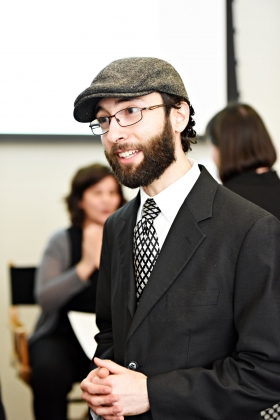By Benjamin Miller, JD/MPP candidate, Class of 2020
This summer, supported by a Donner Fellowship, I worked at Community Legal Education Ontario (CLEO) on its non-profit law site called Get Ready for the ONCA. Since Ontario’s Not-For-Profit Corporations Act (ONCA) is not expected to be in force for at least two more years, my task was to add the vital legal information non-profits need in the meantime.
My trouble was CLEO’s legal accuracy and plain language standards are quite high. I’ve been told that some of their Steps to Justice pages were reviewed by half-a-dozen lawyers before publication, to say nothing about their team of editors. Since I had just one year of law school under my belt, and four months to work, I thought it was unlikely that I could write much content that would pass muster. If I was going to deliver any significant amount of useful information it would be by building on the work of others.
Fortunately, I knew about the vast array of free legal information charity and non-profit lawyers have put out there. Attending the webinars, workshops, and seminars that firms like Blumberg Segal and Carters put on was part of what motivated me to go to law school in the first place!
So I spent the summer looking through the hundreds of resources out there, and I was struck by many things. Firstly, even by carefully focusing on a limited set of questions, I gathered more than 200 resources in a database (which CLEO is happy to share with anyone). Secondly, if I hadn’t known where to look and what to look for, I would have had a very difficult time finding what I needed and knowing whether or not it is up to date. Thirdly, although resources were legally accurate, more often than not, their clarity and accessibility ranged wildly.
Web presence is increasingly important for law firms, and so no matter what area of law you practice in, I would like to share a few of the lessons I learned with you:
- The Internet is cluttered. Every new resource makes this worse, not better, in my opinion. Before you produce something new, make sure it isn’t already out there. If it is, don’t be afraid to link to other firm sites. This has long been the norm in other industries.
- Usability is your goal. The most legally accurate legal information in the world doesn’t help your potential client if they can’t find or understand it especially if they already face barriers to justice. Invest in SEO and writing in plain language. It may take a little longer but you could be wasting your time otherwise.
- It takes forethought and care to take your legal information to the next level. Fortunately, CLEO has produced a guide and I have written a more in-depth account of my method. As the legal web grows, we need to grow with it. I’ve been fortunate enough to have this already be a significant part of my legal education, and I hope that for other lawyers it becomes part of your ongoing education.

